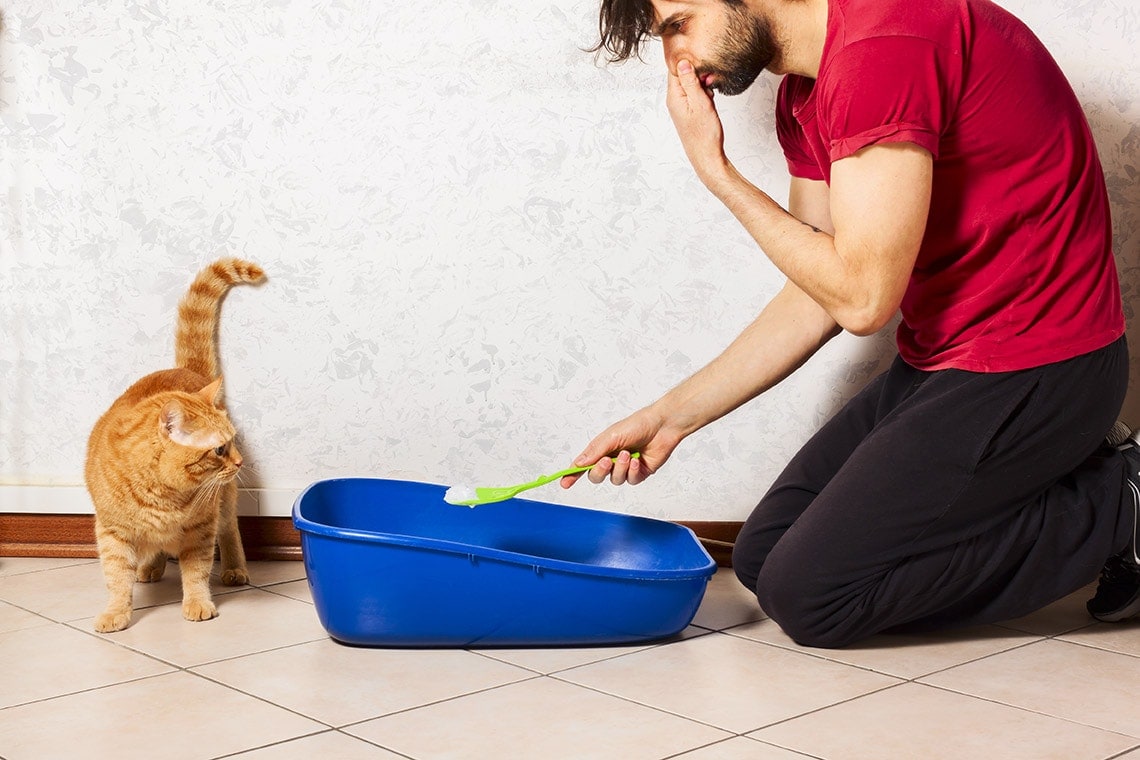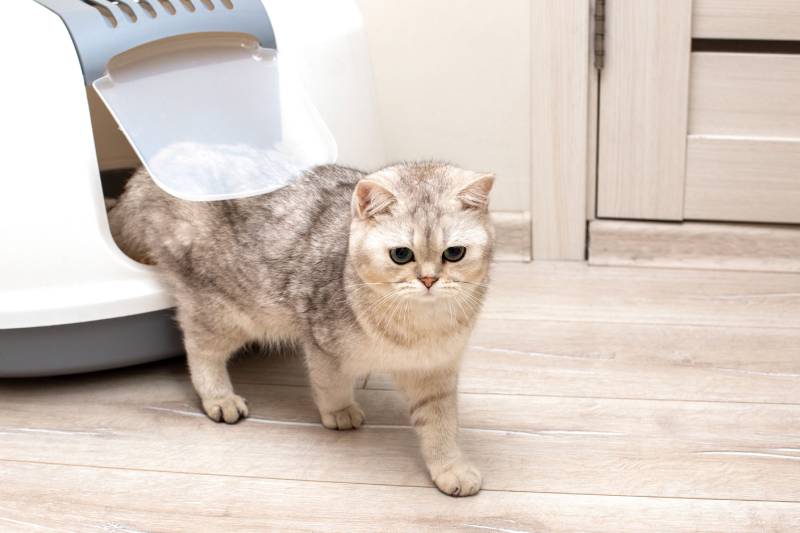My Cat Is Scratching Their Litter Box Excessively: 8 Reasons & How to Stop It
By Ed Malaker
Updated on
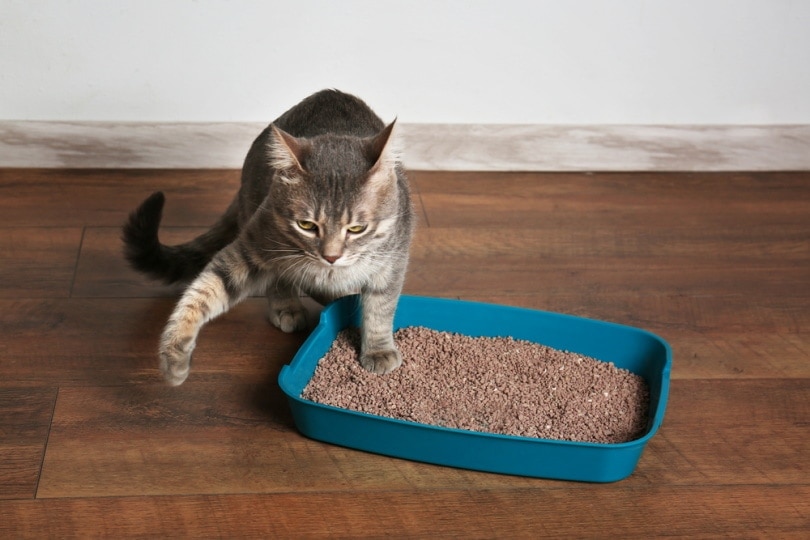
If you’re a cat owner, you may have noticed your pet scratching the sides of their litter box. While this behavior may seem strange or unnecessary, it serves a significant purpose for cats, and understanding it can provide valuable insights into their instincts, communication, and overall well-being. Keep reading as we list several reasons behind this common habit and provide tips for addressing it if it becomes a problem.
The 8 Reasons Cats Scratching Litter Box Excessively
1. They Are Burying Their Business
Many cats will take their time burying their business after using the box. Some cats will spend several minutes meticulously burying it, while others will leave it mostly uncovered, scratching at the floor as they go. Some cats like to scratch inside the box, including the sides, as part of their natural routine.
What Can I Do About It?
Unfortunately, if your cat likes to scratch the sides of the box while they do their business, there may be nothing that you can do about it.
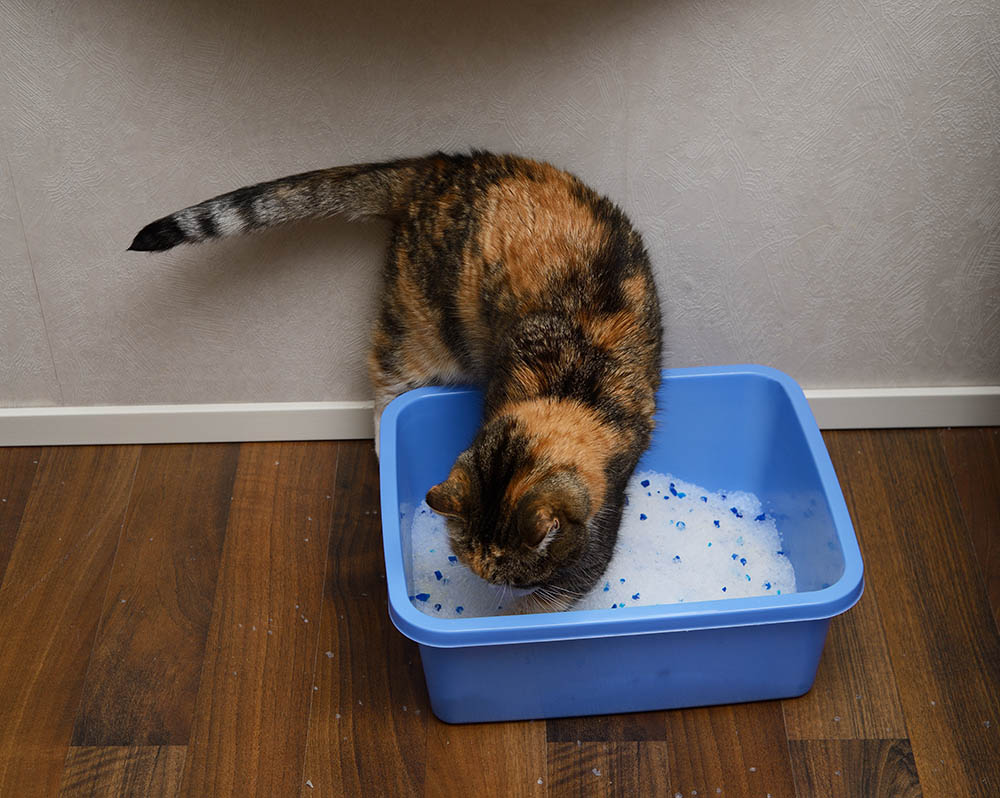
2. There Isn’t Enough Litter
Since cats frequently like to bury their business, they might get upset and scratch the sides of the litterbox and the floor outside it if there isn’t enough litter.
What Can I Do About It?
Always ensure that there’s plenty of fresh, clean litter in the box for your cat to bury their business. Most experts recommend keeping it at least 2 inches deep.
3. They Are Telling You That It’s Dirty
Cats prefer to use a clean litter box, and if they think that it’s time for you to clean it, they may scratch the sides to get your attention.
What Can I Do About It?
While many cat litter brands advertise that you can go several days without cleaning the litter box, your cat will likely disagree, especially if more than one pet uses it. Most experts recommend having one litter box for each cat, plus one as a spare. Having more litter boxes will give you more time between cleanings, and your cat is less likely to get frustrated and scratch the sides of the box.
Wondering whether an enzymatic spray or deodorizing powder is better at fighting pet odors? Compare our Pet Stain & Odor Eliminator Spray to our Deodorizer Powder to see which product is best for your deodorizing needs.
Hepper Bio-Enzyme Pet Stain & Odor Eliminator Spray
Hepper Advanced Bio-enzyme Deodorizer & Litter Additive
Eliminates smells
Works inside your cat's litter
Removes stains
Works on contact
Works on a variety of surfaces
Unscented
4. They Are Acting Naturally
Scratching is a natural behavior for cats that stems from their evolutionary history, and many will scratch trees or other surfaces to mark their territory, release pheromones, and communicate with other cats. This instinctual behavior is still present in domestic cats, and scratching the sides of the litter box can enable them to leave a familiar scent that reassures them that the area is safe.
What Can I Do About It?
This is a natural behavior, so there’s no need to change it. However, if you find the scratching distracting, you can use a litter box with thicker walls or move it to another part of the house.
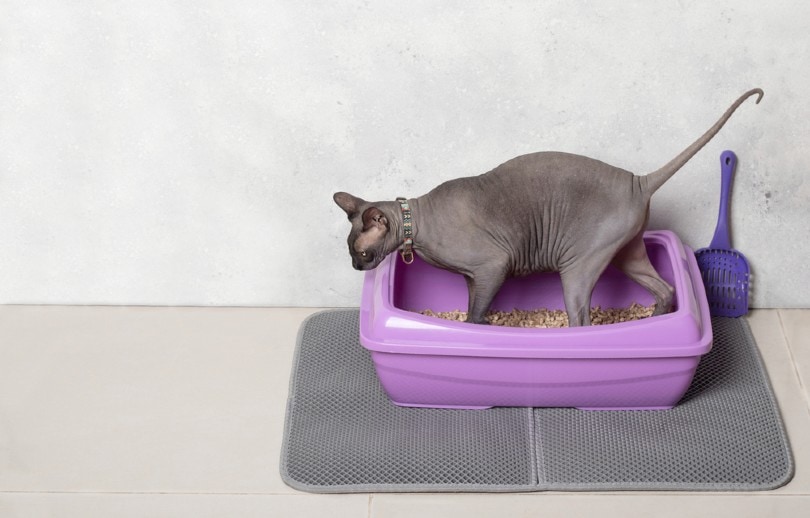
5. They Are Maintaining Their Claws
Scratching helps remove the outer sheath of the cat’s claws, keeping them sharp and preventing them from becoming overly long or uncomfortable. The sides of many litter boxes have a textured surface that enables cats to achieve this natural self-grooming process.
What Can I Do About It?
If your cat is using this side of the litter box to maintain their claws, it might be because they don’t know where else to do so. Try providing your cat with a scratching post or pad to see if it helps reduce this behavior inside the box.
6. They Have the Urge to Scratch
Cats often scratch because it is a way to exercise and acts as a form of stress relief. Scratching helps with keeping their claws in good condition, stretching their muscles, and marking their territory. It can also be a way for them to relieve anxiety or boredom. The sides of the litter box offer a convenient and accessible surface for satisfying this urge to scratch.
What Can I Do About It?
The best way to prevent cats from scratching the sides of the litter box to exercise or relieve stress is to provide them with plenty of scratching pads or a scratching post that they can use instead. These surfaces will likely be more satisfying to your pet and won’t make as much noise.
7. The Litter Box Is Too Small
If your cat doesn’t have enough room to bury their business, they might try to scrape the sides and even the floor outside the box.
What Can I Do About It?
A cat’s litterbox should allow them to move around easily, so we recommend purchasing one at least 1.5 times the length of the cat’s body. If possible, get one without a lid, as this will give the cat more room to get in and out. An enclosed litterbox can also trap smells and fragrances that could bother your cat, especially if you use scented litter.
8. They Are Cleaning Their Paws
Many kinds of litter stick to your pet’s feet easily, and your cat might be scratching the sides to get it off. Clumping litter is the most common culprit, but any type might annoy your cat and stick to their paws.
Cats are famously good at grooming themselves, but sometimes they need a little extra help. Natural, hypoallergenic wipes like our Hepper Wash Wipes can help you keep your cat clean without causing any irritation. These wipes are specifically designed to work on all ages of cats, gently cleaning sensitive areas while effectively removing dirt and grime.
What Can I Do About It?
Unfortunately, since clumping litter is more convenient for many people, there might be little you can do to prevent it from sticking to your cat’s paws. We recommend trying a few different brands to see if you can find one that works better for your pet. In many cases, one with larger or smaller granules than your current brand can help. You can also try non-clumping litter, such as shredded newspaper or diatomaceous earth, which don’t tend to stick as much.
Why Does My Cat Scratch Furniture?
Cats scratch furniture, rugs, curtains, and other items to help them maintain their claws and keep them sharp. Scratching also helps them stretch, exercise, and relieve stress. The best way to prevent them from scratching your furniture is to redirect them to their scratching posts or pads every time they start doing it. Give them a treat or extra praise whenever they make the switch, and after a few tries, they might choose the scratching pad first instead of the furniture.
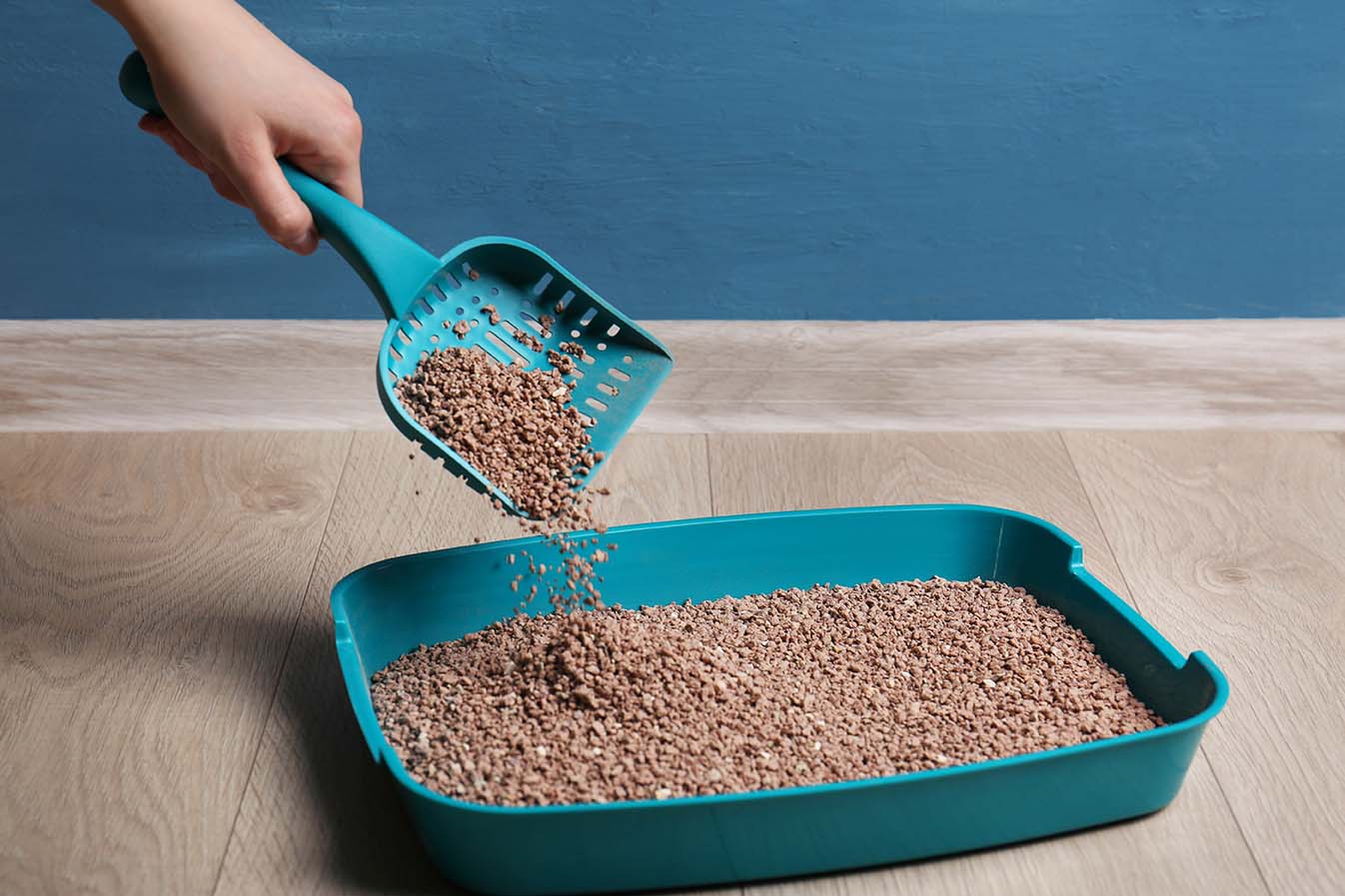
Summary
Cats can scratch their litter box’s sides for many reasons. Some might even do it as a natural part of their routine. The most likely reasons are that the litter box is too small, is dirty, or lacks enough litter, but it can also result from litter sticking to your cat’s paws. Watch your cat carefully to determine the cause, and follow the tips here to prevent it from happening again.
See also:
Featured Image Credit: Africa Studio, Shutterstock






